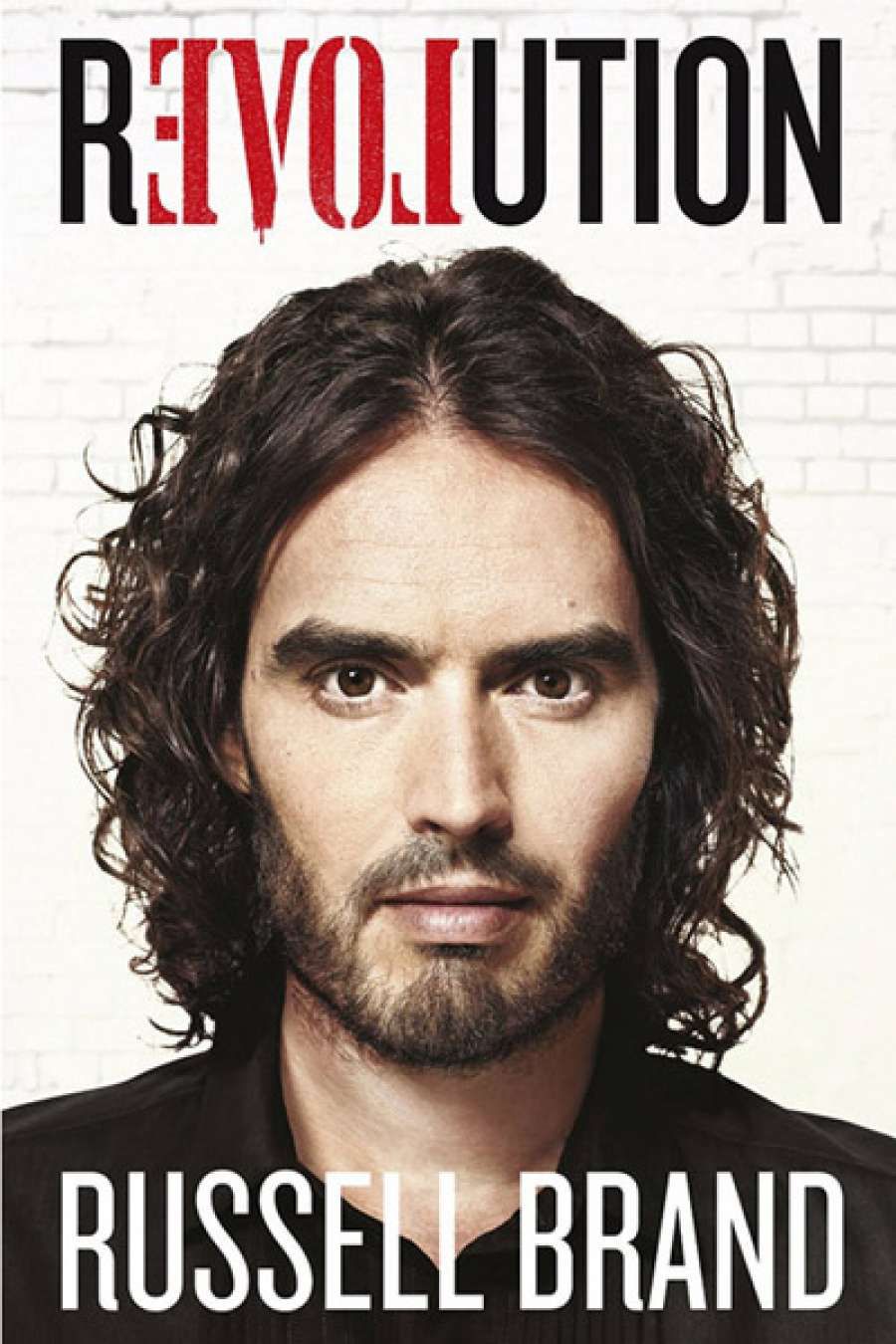
- Free Article: No
- Contents Category: Politics
- Custom Article Title: David Donaldson reviews 'Revolution' by Russell Brand
- Review Article: Yes
- Online Only: No
- Custom Highlight Text:
Russell Brand made headlines when he revealed in an animated interview with Jeremy Paxman that he had never voted. Fresh from guest-editing an issue of New Statesman, Brand had issued a call to overthrow the system responsible for the income disparities and environmental degradation in the world today – but refused, or was unable, to explain how this would happen.
- Book 1 Title: Revolution
- Book 1 Biblio: Century, $35 pb, 384 pp
But this is not just Marx with masturbation jokes or Piketty without the inconvenience of numbers. Instead, Brand attempts to weave together a combination of far-left politics, hippie spiritualism, and junk science into a grand unifying theory of social change.
Amid the half-baked ideas, the reader endures another struggle: wading through the dense sludge of his maddeningly verbose narrative style, which swerves from political rant to incoherent joke to personal anecdote to something approaching surrealist poetry. In parts it seems like little more than self-help, for both author and audience. But it is the bits on transcendental meditation (or TM, as he calls it) where he gets most carried away:
This attitude of churlish indifference seems like nerdish deference contrasted with the belligerent antipathy of the indigenous farm folk, who regard the hippie-dippie interlopers, the denizens of the shimmering tit temples, as one fey step away from transvestites.
The spiritual stuff aside, Brand basically proposes an anarchist revolution. While lacking a coherent overall framework, he cites a grab-bag of specific ideas including: ‘revoking the charters of any corporation with revenues larger than the smallest national GNP’ (which would mean getting rid of any company richer than Tuvalu, at roughly $40 million per year); banning private security; ending personal titles; restricting corporations to a single function; and cancelling all personal debt.
Brand tells us ‘the nation state may have served its purpose and have to be dissolved’ in favour of local collectives. At the same time, he advocates for complex government interventions like controlling the funding of political campaigns, taxing food miles, and ‘renegotiating trade treaties to insist that multinational corporations be place-based and accountable to nation-states’, none of which could be achieved in the absence of a state.
The book’s position on international trade exemplifies Brand’s tangled arguments. On vehicles: ‘I wouldn’t worry too much about exporting them, as other countries have their own fucking cars.’ Never mind that Brand enjoys riding in his mate’s Mercedes – as did Hitler, he guiltily reminds us. Never mind that not everyone builds their own cars or that autarky cannot exist without clearly defined national boundaries (does it make sense to have a national carmaker if you are eradicating the nation?). Never mind that putting up barriers to trade will lead to increases in the cost of living, sometimes significantly so. Brand admits: ‘I can’t get my head around economics.’
Although he spurns authority, Brand’s model of social change would require a great deal of coercion to get anywhere. But he also rejects violence, even revolutionary violence: ‘It’s not that we want an old-style Revolution of guillotines and gulags and big fancy show-trials, it’s actually a powerful but gentle process where we align to a new frequency.’
Though he famously rejects voting under present circumstances, Brand thinks technology may help, allowing the punters to have a regular say on all manner of legislative questions. But direct democracy does not always work out the way you want it to: he notes that Swiss voters rejected referenda that would have given citizens a basic income and imposed a maximum wage on CEOs, and approved a ban on the construction of new minarets (which he erroneously describes as banning the building of new mosques).
The Swiss, he concludes, made these decisions not because people have different interpretations of their own interests, or because the ideas rejected may have been questionable, or because voters sometimes make bad decisions, but because we are controlled by a media-political conspiracy.
Brand openly states that he believes in what he calls ‘“The Conspiracy” that global politics is governed by a shady cabal who meet in a smoky, dim-lit room and cacklingly manipulate our destiny’ (we also learn that Julian Assange disagrees with him on this, instead seeing the global élite as enjoying an alignment of interests in the same direction, but no central coordination).
Clearly, Brand’s goals could never be attained while there exist those with different political ideas. Accordingly, it is not enough to change the material organisation of society, because the people don’t yet realise they’re wrong. If we all start loving God a bit more and realise what Brand insists we already know is true, we can all become more perfect, and utopia will be within grasp. Simple.
Supporters argue that Revolution has generated debate. Perhaps it will inspire some indifferent teenagers to become more engaged with politics. But if this is what revolution looks like, I don’t want to be part of yours, Mr Brand.


Comments powered by CComment